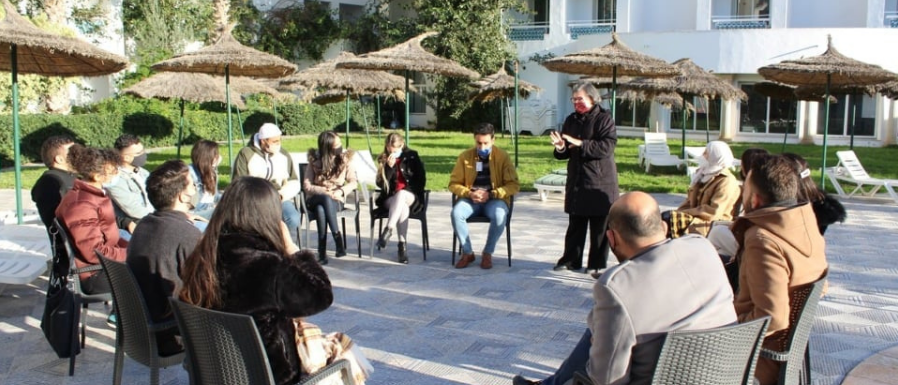Within the framework of the Project “Youth Empowerment for Local Democracy in Tunisia” (Autonomisation de la jeunesse pour construire une Démocratie locale en Tunisie) a set of three trainings have been organised in different cities of Tunisia.
The first one took place from 8th to 12th of February in Tabarka, in the governorate of Jendouba, while the second from 15th to 19th in Hammamet. In both cases two groups of 20 people got together to join the activities, and specifically for the one in Hammamet, participants came from the cities of Ezzahra and Bardo. The idea was to support them in becoming familiar with different tools such as design-thinking, project development, citizen mobilisation, and advocacy techniques. Finally, the third was organised in Mehdia, from February to 22th to 26th.
There are many issues at stake in the participation of young citizens at the local level
ALDA had a supporting role in delivering these trainings and while sharing its technical knowledge and expertise, also in light of the United Nations SDG number 11 on “Sustainable cities and communities”. Finally, trainings have been organised together with the project leader “Tamkeen For Development”, an association which is working for the establishment of a civil society where young people and women will be able to free themselves financially and participate actively in the economic cycle.
From a general perspective, the overall aim of the project is to stimulate youth capacity-building so that young generations will be able to take part in the decision-making processes at local level. In fact, there are many issues at stake in the participation of young citizens at the local level. These include the involvement of young citizens in the development of their living environment and in the sustainable management of local communities.
Thus, three main results are expected from this project. Starting from the identification of the needs of communities to the analysis of the participatory budgets of municipalities in the form of a social audit. Finally, participants will be able to be more responsive to the needs of the communities through the social innovation unit created in each municipality and to disseminate the principles of transparency, responsibility and accountability.
